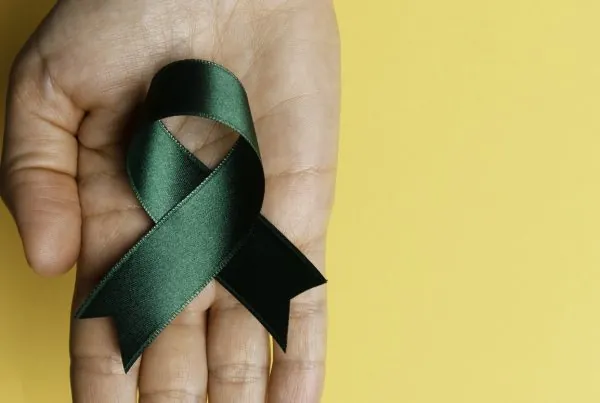In both inpatient and outpatient cases, teens undergoing treatment for a psychiatric condition will face daily challenges and undergo a long-term transformation. Yet, in inpatient treatment cases, teens will often be asked to leave behind their friends, school, and family to spend time in a completely different setting, whether for just a few weeks or several months. And while this is happening, it’s natural to ponder about continuing academia or teen academic support during therapy.
This can be a reason for some teens to reconsider or worry about the implications of mental health treatment. Is it worth putting everything on hold to “get better”? And what if it doesn’t work?
Not Being Left Behind
Life is challenging as it is – juggling relationships, family, and school responsibilities can be daunting, and for many teens, seeking help might mean having to forego some of these responsibilities. Teens don’t want to be left behind, whether it’s academically or socially.
Assuaging these fears is important. And this is why academic support is crucial.
A New Setting Can be Overwhelming
Residential treatment centers usually entail taking a teen out of their usual environment and putting them in a completely new setting, with new peers, new therapists, and different faces. This can be overwhelming – but it’s not all new. Teens in residential therapy will still have school responsibilities, they will still have teachers, they will still have lessons and curriculums, and they will still have peers to talk to.
Consistency is Key
Having these elements stay consistent in a teen’s life, both within and outside the context of therapy, is important. Conditions like depression, anxiety, and even psychosis can thrive in chaos and confusion. Consistent schedules, ongoing responsibilities, and opportunities for self-improvement can help teens focus on the day-to-day task at hand, avoid rumination, and build up their self-esteem – while keeping them on an equal playing field with their friends and peers back in school.
Should Teens in School Go into Treatment?
This is a trick question – mental health treatment needs to be made available to everyone who needs it and wants it, and everyone who needs or wants it should be able to confidently seek help from a mental health professional and get a treatment plan tailored to their circumstances and symptoms.
Teens are no exception, and in fact, adolescence is one of the most important periods to tackle mental health issues, as it provides greater opportunities for therapists and mental health professionals to impart the importance of healthy coping skills, and help teens tackle their symptoms before they grow worse in adulthood or lead to co-dependent health issues later in life.
However, treatment for teens needs to take their circumstances into account just as much as it does for adults. Adults who cannot afford to leave work won’t be able to consider residential treatment as an option, for example.
Teen Residential Treatment and Therapeutic Day School
In the case of teen treatment, residential treatment can be made possible through a robust and accredited academic program that continues to instruct teens as per state- or school-specific curriculum, offering them the opportunity to keep up with their peers while seeking help for their symptoms.
It’s still work. Teens in treatment will be expected to show up to lessons, do homework, and prepare for exams – all while continuing to attend treatment sessions, both individually and in groups, and participating in group activities. Preparing for your SATs or college application deadlines while going to therapy for a dual diagnosis can be tough.
But a day school in a residential treatment facility sets itself apart from a regular day-to-day classroom in that teens in treatment can seek individualized tutoring and may be better able to learn within the setting of a residential treatment clinic versus a conventional classroom.
Synergizing Academic Achievement and Mental Health Treatment
Meanwhile, there is synergy between promoting academic achievement and the mental health treatment process. Just as doing better mentally can help you study, an individually tailored academic program can help you feel better mentally.
Some teens don’t respond well to the typical structure of a school day or haven’t managed to find a way to study that suits them, especially if they’re struggling with the symptoms of a neurobehavioral disorder like ADHD.
Individualized Support and Education
Individualized support in the form of a day school at a residential treatment center can help teens balance studying with their mental health, improve their ability to cope with stressors while retaining information, and find alternative ways to prepare for tests and learn without the pressure and classroom setting of a normal school. Furthermore, day school programs help teens ensure that they aren’t left behind while in therapy and synergize treatment with a teen’s day-to-day academic responsibilities.
Helping teens improve their responses to stressors and prepare for the challenges that lie ahead are important parts of therapy. Some teens are too afraid to speak up about their depressive feelings or anxiety symptoms because they don’t want these things to jeopardize their chances at college, affect their relationships, or be a burden on their grades. But they are – if left untreated.
Teens with mental health issues have a much harder time retaining information and doing well at school – and these issues can continue to be exacerbated later in adulthood.
Furthermore, adolescence is a crucial chapter in the rest of a teen’s life – academic performance can have an impact on career options and college opportunities. Helping teens improve their grades through residential treatment serves as a major boon for the rest of their lives.
Choosing a Residential Treatment Clinic
Residential treatment centers differ in the modalities they offer and the facilities they have. Not all residential treatment clinics offer a day school and teen academic support programs for teens. When choosing a treatment clinic for yourself or your loved one, choose one with an accredited academic program and a reputation for helping teens continue their studies while in treatment.
A residential or inpatient treatment clinic is often just the first step in a longer journey. In many cases, mental health isn’t about curing a defect, but about learning to cope with one’s unique circumstances, and living a full and happy life in spite of the challenges one faces.
Teen Academic Support During Therapy at Visions Treatment Centers
If you or your teen is considering entering into residential treatment but worried about falling behind in academics, contact us today.
At Visions Treatment Centers, we offer Day School for teen academic support while receiving therapy. With a consistent schedule and custom-made curriculum plan, you or your teen will get the professional help they need while maintaining grades, social activities, and more.








